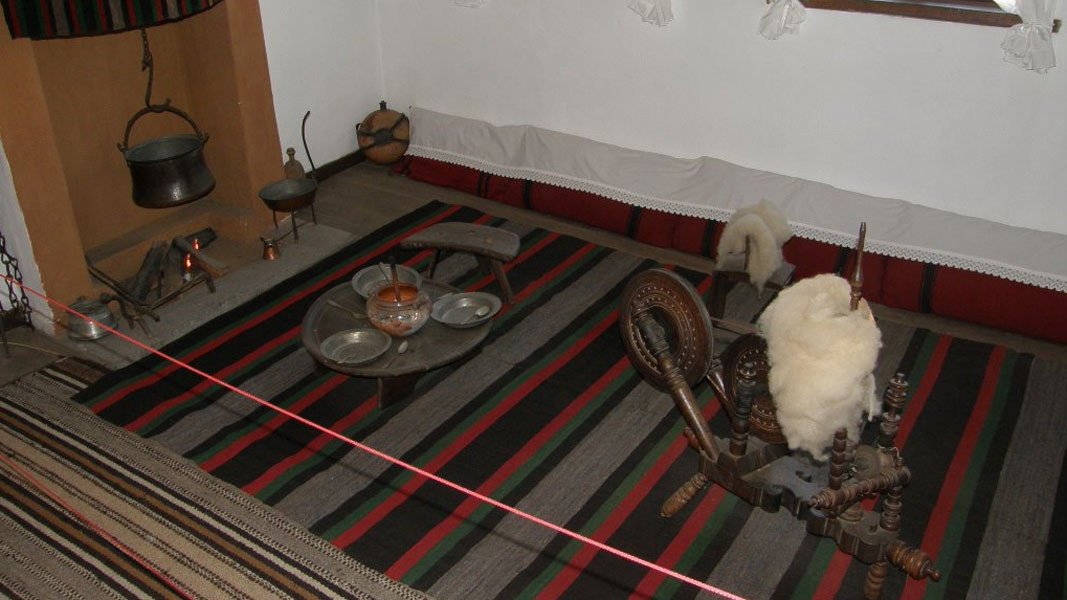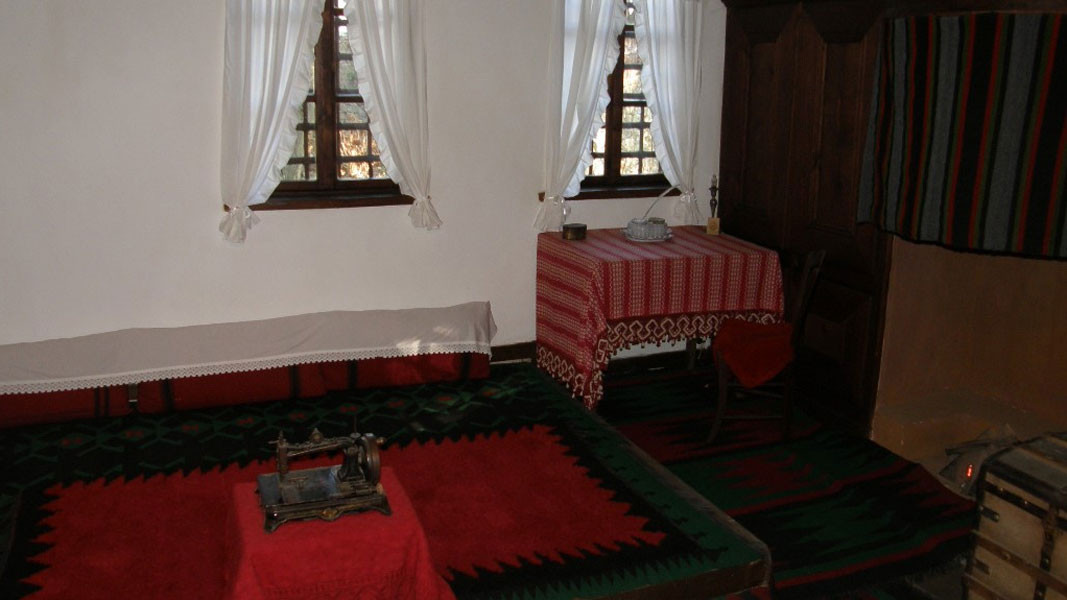On the Day of Hristo Botev and those who fell for the freedom of Bulgaria, we take you to his home in Kalofer, which was turned into a museum 75 years ago. The story of the house is interesting and it is part of a museum complex, declared a monument of culture, the head of the museum Asya Nikolova told Radio Bulgaria. Studies by artist Prof. Haralampi Tachev found that the Botev family actually lived in two houses:
“Hristo Botev was born in the building of the old school, which was situated near the church. The members of the restoration committee decided that the place there was inadequate for the construction of a museum. So they decided to restore the house Botev called his home and lived in for the longest time. This is a house of the mother of the revolutionary Ivanka Staykova Dryankova. Its official opening as a museum took place on June 2, 1944 and since then it has never closed its doors.

Unfortunately, items that belonged to the family are very few. Inside the house we see a spinning wheel and a sewing machine used by Ivanka. She was sewing to support her family because of her husband's illness and early death. Today, with the help of ethnographic materials, the family environment, where Botev grew up, has been recreated.”

On June 2, 1926, when Kalofer marked the 50th anniversary of the death of the revolutionary poet, the so-called "Botev Garden" was opened. It was created in the yard, presented to the inhabitants of the town for eternal times by Hristo Botev’s brother – Kiril Botev. The general's wish was to create a beautiful park with a monument to his brother. The first plate, outside the current memorial complex, on which the dates of birth and death of the poet were written (January 6, 1848 –June 2, 1876), was placed back then. In this way, the construction of the museum complex started.
The free spirit, the fierce protection of righteousness and readiness for sacrifice marked the life not only of Hristo Botev but also that of his brother. General Kiril Botev was a participant in three wars - the Serbian-Bulgarian War and the two Balkan wars, and his whole life, before and after the Liberation of Bulgaria, was dedicated to the homeland.
“He studied at Kalofer and taught for a while in the village of Golyamo Belovo,” Asya Nikolova says. “In the period when he and his other brother Stefan and grandmother Ivanka immigrated to Romania, Kiril Botev was also a teacher. He also participated in the revolutionary group led by Hristo Botev. Prior to the Milin Kamak battle in which Hristo Botev lost his life, Kiril Botev became lost with two more fighters, and this is what saved him. He then attempted to return to Romania, but was captured and convicted. At that time he was a minor and he was sentenced to 15 years of strict prison. After the Liberation (1878), Kiril started studying at the military school and devoted himself to the military career.”

People such as Hristo Botev and his brother, Gen. Kiril Botev, are an inspiring example for young people today. And while we often perceive freedom for granted, it is important to recognize its value and the sacrifices made by our ancestors. "Freedom also means great responsibility," Assya Nikolova says. “We should read more often Botev’s articles and letters and we would see our contemporary time and issues described in them.”
English: Alexander Markov
Photos: muzeibotev.comThe founder of Romanian photography, the artist Carol Popp de Szathmari was a contemporary of the Bulgarian National Revival period. He had the opportunity to take photographs of and leave as documentary images famous personalities and events from the..
Monuments keep alive the memory of important events of the past. Most of them tell of human sacrifices, of the land drenched in the blood of heroes who defended the homeland. Chroniclers collect these historical fragments and place them in the broader..
An exhibition of priceless artefacts from Bulgaria's history will be on show at the Etar open-air ethnographic museum near Gabrovo from March 1 to 5 . Visitors will find the exposition in the largest building of the ethnographic complex, which is..

+359 2 9336 661
